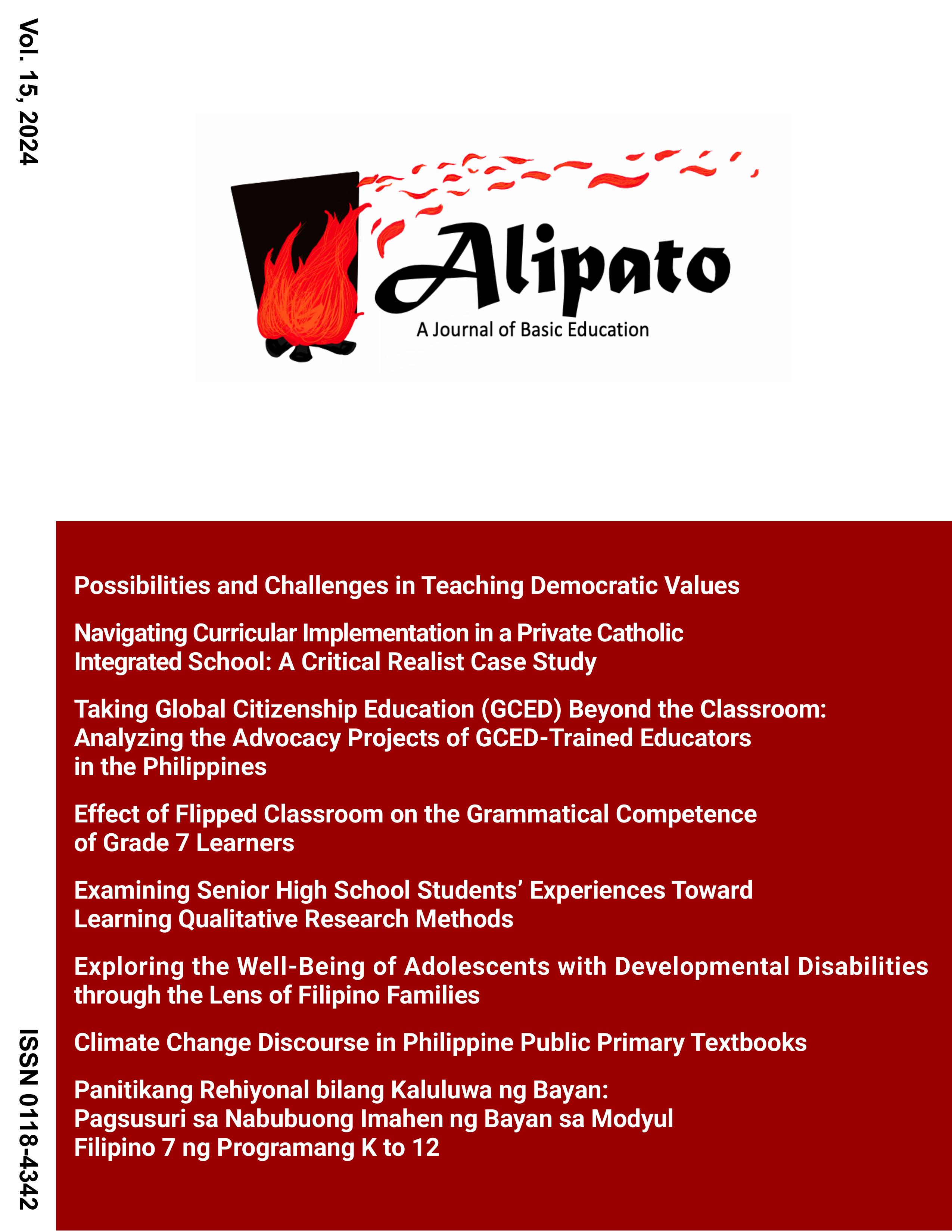Possibilities and Challenges in Teaching Democratic Values
Abstract
Recent debates about the “lack of values,” especially “respect,” among the Filipino youth, their participation in the 2022 general election period, and the political distrust and polarization among citizens thereafter have renewed public interest in the role of schools in fostering democratic values among students. Complementing the literature on Civic Education, which highlights the role of Social Studies in basic education, this paper explored how “democracy” is conceived, promoted, and practiced in teaching Values Education among selected junior high schools in Luzon. The researchers sought to understand the perspectives and context of Values Education teachers in teaching democracy and relevant values among their students. After doing a thematic analysis of collected data, they learned that the participants primarily equated “democracy” with “freedom of expression.” Hence, practices fostering freedom of expression were also taken as promoting democracy, such as class conversations, campus journalism, and clothing preference based on one’s gender identity. This take on freedom appears to be a condition for another sense of democracy known to them as the “power to the people,” wherein processes like voting, consensus-building, rights-claiming, etc. were taken as indicators of power-sharing. According to the participants, teaching democracy and the values related to it were mostly implied in all their lessons and school practices. Nonetheless, the researchers learned that democracy as a topic becomes directly relevant at the Grade 9 level of the Values Education Curriculum due to topics like political and civil society, rights and responsibility, and social justice. Amidst these processes, the participants argued that teachers have a crucial role to play in fostering a learning environment that allows for deliberation and “responsible” freedom of expression and provides positive role models for students. The study has also yielded accounts of school practices that undermine democratic values and limit agency among teachers and students, such as generational differences in value orientation, implicit power relations between teachers and students, and limited time alloted for the subject. Lastly, the study attempted to analyze the possibilities and limitations of those conceptions and practices in fostering democratic values in schools and society at large.


